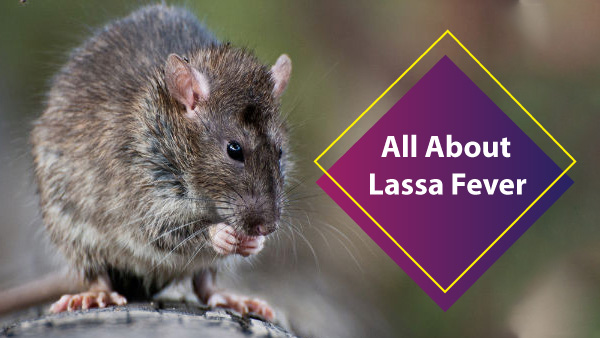Just In
- 1 hr ago

- 5 hrs ago

- 8 hrs ago

- 9 hrs ago

Don't Miss
- Technology
 TSMC's Global Expansion Could Drive Up Chip Costs, Making Tech More Expensive
TSMC's Global Expansion Could Drive Up Chip Costs, Making Tech More Expensive - Automobiles
 Suzuki Motorcycle India Achieves Production of Over 8 Million Two-Wheelers
Suzuki Motorcycle India Achieves Production of Over 8 Million Two-Wheelers - Movies
 LSD 2 Review: Dibakar Banerjee Presents An Entertaining And Relatable Love S*X Aur Dhokha
LSD 2 Review: Dibakar Banerjee Presents An Entertaining And Relatable Love S*X Aur Dhokha - Finance
 Iran-Israel War: How It Impacts Nifty, Sensex And Indian Rupee
Iran-Israel War: How It Impacts Nifty, Sensex And Indian Rupee - News
 Lok Sabha Election 2024: Polling Begins In 39 Lok Sabha Seats In Tamil Nadu
Lok Sabha Election 2024: Polling Begins In 39 Lok Sabha Seats In Tamil Nadu - Sports
 IPL 2024: 'It was his idea only' - Rinku Singh reveals Gautam Gambhir's masterstroke with Sunil Narine move
IPL 2024: 'It was his idea only' - Rinku Singh reveals Gautam Gambhir's masterstroke with Sunil Narine move - Education
 Karnataka SSLC Result 2024 Soon, Know How to Check Through Website, SMS and Digilocker
Karnataka SSLC Result 2024 Soon, Know How to Check Through Website, SMS and Digilocker - Travel
Telangana's Waterfall: A Serene Escape Into Nature's Marvels
First Death Confirmed In UK From New Outbreak; Know About Lassa Fever And Its Symptoms, Risks And Treatment
Lassa fever is a zoonotic or say an animal-borne disease which is transmitted by rats. The fever is endemic in West Africa and has the potential to cause tens of thousands of deaths.

As per the recent news, three people in the UK have been diagnosed with Lassa fever, out of which one has died on 11 February. Also, all three patients were from the same family and have recently travelled to West Africa.
Let's know more about the condition. Take a look.
What Is Lassa Fever?
Lassa fever is a viral haemorrhagic fever, similar to Ebola, Malburg and yellow fever. Studies say that the condition is known since the 1950s, however, was first identified in 1969 after the deaths of two missionary nurses in the town of Lassa in Nigeria. [1]
According to the CDC, around 1-3 lakh cases of Lassa fever occur annually, with around 5000 deaths. Around 80 per cent of individuals infected with Lassa fever have no to mild symptoms while 1 out of 5 infections may result in severe outcomes.

Causes Of Lassa Fever
Lassa fever is caused by the Lassa virus which is a single-stranded RNA virus that hosts a rodent "multimammate rat", scientifically known as Mastomys natalensis. This rat species is a common African rat. [2]
The infected rodent excretes the virus in their urine, probably the whole life. Also, they produce large numbers of offspring that colonise homes and store foods.
When the urine or faeces of these rodents come in direct contact with objects or foods, they get contaminated with the virus. Exposure to these fomites due to ingestion or inhalation can lead to the efficient spread of the Lassa virus from rodents to human hosts.
Also, the contamination is highest during the dry season and lowest during the wet season. [3]
Some of the ways by which the Lassa virus is transmitted from rodents to humans may include:
- Leftover human food.
- Inhalation of air contaminated with rodent excretion.
- Cleaning of excretion.
- Poorly stored food contaminated with rodent urine.
- Exposure through open cuts and sores.
- Person to person transmission through secretions or blood.
- May spread via contaminated medical equipment ike syringes.
Note: Lassa virus is not spread from casual contact with no involvement of body fluids.

Symptoms Of Lassa Fever
The symptoms of Lassa fever usually start showing within 21 days after coming in contact with the virus. The symptoms are mild in 80 per cent of cases. It includes:
- Mild fever
- Weakness
- Malaise
- Headache
- Inflammation in the back of the throat.
- Proteinuria or increased levels of protein in the urine. [4]
The remaining 20 per cent may get severe symptoms such as:
- Hearing deficit. [5]
- Haemorrhaging in nose, gums and eyes.
- Recurring vomiting.
- Pain in the stomach.
- Pain in the chest.
- Respiratory distress.
- Facial swelling.
- Encephalitis
- Tremors
7-Month-Old Baby Diagnosed With Rare Genetic Disorder BENTA Disease: All About The Condition
Risk Factors Of Lassa Fever
- Staying or visiting areas where Lissa fever is endemic.
- Mishandling of medical equipment.
- Dry season (between January to March)
Complications Of Lassa Fever
Lassa fever may cause severe complications such as:
- Multi-organ failure
- In pregnant women, it may lead to sudden abortion.
- Pleural effusion or "water on the lungs".
- Pericardial effusion or buildup of extra fluid in areas around the heart. [6]
Diagnosis Of Lassa Fever
As Lassa fever is one of the four viral hemorrhagic fevers (VHF), its diagnosis often gets difficult due to similarities in the symptoms with the remaining three VHFs. Some of the methods to diagnose Lassa fever may include:
- Enzyme-linked immunosorbent serologic assays (ELISA): The test helps detect antibodies produced in response to the Lassa virus.
- Reverse transcription-polymerase chain reaction (RT-PCR): It helps detect Lassa virus RNA in the body. [7]

Treatments Of Lassa Fever
The effective treatment methods for Lassa fever may include antiviral medications like ribavirin. [8] Supportive methods like appropriate fluid and oxygenation may help improve the condition of the patients.
Prevention Of Lassa Fever
- Store foods in containers and keep them away from rodents.
- Keep the home clean.
- Avoid consumption of rodents as a food source.
- Avoid direct contact with contaminated patients.
- Wear protective gear while handling patients with Lassa fever or medical equipment.
To Conclude
Visit a medical expert if you have the aforementioned symptoms.
-
 disorders cureWHO Publishes First Ebola Treatment Guideline
disorders cureWHO Publishes First Ebola Treatment Guideline -
 disorders cureEverything You Need To Know About Fever, Dengue Fever, Ebola, Chikungunya And Typhoid Fever
disorders cureEverything You Need To Know About Fever, Dengue Fever, Ebola, Chikungunya And Typhoid Fever -
 disorders cureDisease X, A New Disease Similar To COVID-19 And Ebola: Everything You Need To Know
disorders cureDisease X, A New Disease Similar To COVID-19 And Ebola: Everything You Need To Know -
 disorders cureChapare Virus: Human-To-Human Transmission Of Deadly Ebola-like Virus Confirmed
disorders cureChapare Virus: Human-To-Human Transmission Of Deadly Ebola-like Virus Confirmed -
 wellnessWorld Toilet Day 2020: Infections You Can Catch From A Dirty Toilet
wellnessWorld Toilet Day 2020: Infections You Can Catch From A Dirty Toilet -
 disorders cure15 Warning Signs And Symptoms Of Ebola Virus Disease
disorders cure15 Warning Signs And Symptoms Of Ebola Virus Disease -
 wellnessCan Ebola Virus Disease Be Prevented?
wellnessCan Ebola Virus Disease Be Prevented? -
 newsEbola Outbreak In Congo, WHO Declares Global Health Emergency
newsEbola Outbreak In Congo, WHO Declares Global Health Emergency -
 disorders cureBF.7 Covid Outbreak: New Variant Will Not Lead To Another Major Wave In India; Why?
disorders cureBF.7 Covid Outbreak: New Variant Will Not Lead To Another Major Wave In India; Why? -
 kidsExplained: The Pathogen That Could Be Causing Hepatitis Outbreak In Kids
kidsExplained: The Pathogen That Could Be Causing Hepatitis Outbreak In Kids -
 disorders cureLangya Virus Reported In China Causes Liver, Kidney Failure: Symptoms, Transmission And Its Link To Nipah
disorders cureLangya Virus Reported In China Causes Liver, Kidney Failure: Symptoms, Transmission And Its Link To Nipah -
 disorders cureWhat Is Coronaphobia, A Newly Emerged Phobia? Symptoms, Risk Factors, Diagnosis And Treatments
disorders cureWhat Is Coronaphobia, A Newly Emerged Phobia? Symptoms, Risk Factors, Diagnosis And Treatments


 Click it and Unblock the Notifications
Click it and Unblock the Notifications



